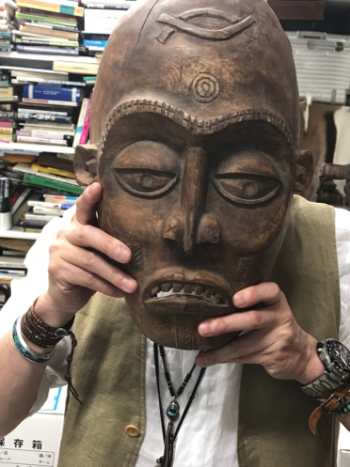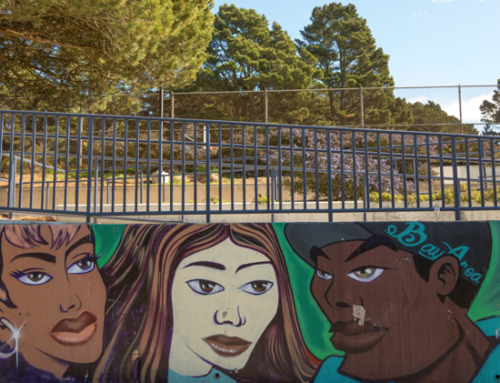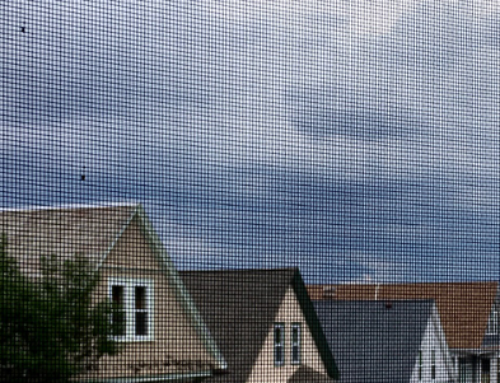I have been thinking, researching, writing and practicing – to the extent possible – about incompleteness and conviviality for some time. My basic argument is that everything in the world and in life is incomplete: nature is incomplete, the supernatural is incomplete, humans are incomplete, and so is human action and human achievement. Such incompleteness implies that people are not singular and unified in their form and content, even as their appearance might suggest that they are. And so are things. Fluidity, compositeness of being and the capacity to be omnipresent in whole or in fragments are core characteristics of the reality and ontology of incompleteness, and the ethic of conviviality and ubuntu that it entails.
It is in recognition of incompleteness that humans are ever so eager to seek ways of enhancing themselves through relationships with other humans, and in using their creativity and imagination to forge solidarities and to acquire magical objects or technologies that can extend them in their relationships with fellow humans and with the whims and caprices of natural and supernatural forces and agents.
Incompleteness is an enduring condition. The quest for extensions in order to repair one’s state of incompleteness only makes one realise one’s incompleteness when confronted with all manner of extensions that one has not mastered. Moreover, extensions tend to work only partly, and only some of the time—and some of them actually undermine the degree of completion one thought one had achieved. The fact that the pursuit of completeness is elusive and illusory, and can only unleash sterile ambitions of conquest and zero-sum games of superiority, is an invitation to explore, contemplate and provide for a world of open-endedness, interconnections, fluidities and conviviality. It is an invitation to a world in which no one has the monopoly of power or powerlessness, in which humans and things complement each other and double as one another.
In this essay, I fantasize on the extent to which our Coronavirus experience may drag us, kicking and screaming perhaps, into an allure of realities of incompleteness, myriad interconnections and interdependences, and the currency of conviviality. Wishfully, I also imagine that we, as producers of anthropological knowledge (conscious of our personal, collective and disciplinary incompleteness), are all bending over backwards for inspiration on how productively to cope with unpredictability in thinking, researching and representing the world with humility. Covid-19 has preferred to prey on our cleavages opportunistically like a convoy of oil tankers ablaze in an inner city, and in the process has taught us a thing or two that we could draw on to emphasize a commitment to incompleteness and conviviality, as well as how we go about our processes of knowing and producing knowledge in the interest of a truly egalitarian world.
Prior to our encounter with Covid-19, many of us would have insisted on making a point to distinguish our face-to-face interactions with one another from the extensions of our relationships made possible by various technologies of presence and/or absence in multiple places and spaces simultaneously. We have tended to insist, for example, on reality being offline and to consider online extensions of ourselves as virtual and irreal. Hopefully, our Covid-19 lockdown experiences of seeking to stay in touch despite our separations have pushed us to rethink such stark propensity to dichotomize in absolute zero-sum terms. We just might have learnt, paradoxically, that to defeat Covid-19, would require a different type of connectivity – one that is not necessarily physical, but certainly social and emotional. It requires harnessing a virtual form of solidarity in order to enable coming together while staying apart. For, as health scientists have repeatedly stressed, Coronavirus does not spread itself, people spread it. To discipline, punish, and curb its excesses in turn, demands of us discipline enough to suspend our immediacy in the sense of touch, taste, and smell, by embracing technologies of presence-in-absence and absence-in-presence.

Japanese anthropologist, Professor Kiyoshi Umeya of Kobe University, trying out a mask at his office. Photo by Francis B. Nyamnjoh
Our Covid-19 experience thus also offers anthropologists an opportunity to imagine the complementarity of the offline and online in our interactions with one another and with those we study. We could consider this as an epistemological order of thick and thin descriptions in which the senses of sight and touch do not necessarily have the centrality, dominance, and prescriptiveness that anthropologists tend to privilege in face-to-face interactions and participant observation pretensions. The humility of incompleteness and conviviality suggests that we can be blinded by sight and sighted by blindness, just as we can learn to touch, smell, hear, and feel virtually, remotely from a distance and from internalised memories. The real is not only what is immediately and directly observable or what makes cognitive sense; it is also the invisible, the emotional, the sentimental, the intuitive, and the inexplicable. Covid-19 invites us to question dualistic assumptions about reality, and to contemplate and provide for convivial scholarship.
As anthropological knowledge seekers and producers who are faced with inadequacies that may be biological, social, cultural, economic, and political in nature, our Covid-19 experience further challenges us to invest in building bridges across knowledge systems. This entails hope, interpretation and mediation in those claiming the status of seers and frontier beings, in those imbued with larger than life clairvoyance and capacity to straddle worlds, navigate, negotiate, and reconcile chasms, borders, and boundaries. With the potency they avail us, we are able to activate ourselves to mitigate the inadequacies of the five senses and the sensory hierarchies we are schooled to internalise and reproduce, so that we too might perceive what is ordinarily lost to us in our delusions of completeness.
Just as we can henceforth adopt and integrate new digital tools of data collection not merely as an add on in times of crisis and desperation (when the face to face is distant or impossible), but as integral to the multifaceted complexity and nuanced nature of the composite reality that we are and seek to recognize and provide for in those we study. Mediators or interpreters are multidimensional in their perception, because of their capacity to see, feel, hear, smell, and taste things that are ordinarily beyond sight, feeling, hearing, smelling, and tasting. Such mediators may be fellow humans, just as they may be technologies of self-extension for humans. Mediation requires recognising and providing for incompleteness and conviviality not as inadequacies, but as conditions for appreciating the nuanced complexities of being and becoming as permanent works in progress.
Covid-19 thus invites us all into entertaining new fantasies of social life, and knowledge of self and other in their multiplicities and compositeness From the strength of its invisibility and how we have adapted to it in our quest for survival, Covid-19 has taught or at least reminded us that reality is more than meets the senses and the world an experience of life beyond sensory perceptions. Consciousness matters more than the bodily containers that house it. Consciousness can inhabit any container – human and non-human, animate and inanimate, the visible and invisible – regardless of the state of completeness or incompleteness of the container in question. For the students of human creativity, imagination, and relationships that anthropologists are at our best, it is instructive to be reminded by an invisible killer virus of the virtues of delving beneath appearances and digging deep into the roots of things, as critical for understanding eternally nuanced and ever-shifting complexities of being and becoming. Digging deep makes impossibilities possible, just as it makes the possible impossible.
I expect a post Covid-19 anthropological knowledge production process inspired to embrace a world where the logic and reality of sensory perception are constantly challenged. I see us taking seriously, the creative and innovative potential of the blurriness of frontiers, crossroads, and shadowlands. I imagine us being more emphatic and consistent in stressing interlinkages and factoring interconnections into how we relate to the world and its hierarchies. With Covid-19, rigidity, fixation, and the hubris of predictability are far from stable currencies. This is a worthy lesson with a fascinating pacesetter quality for our ambition to generate anthropological knowledge that stands the test of time. Production of such knowledge should be sensitive to the myriad mobilities, sensory and otherwise, that account for our world as a permanent work in progress, which constantly challenges what we know. Although Covid-19 may not have succeeded in the short term in significantly humbling the structures of inequality and hierarchies of humanity, this should not stop us from fantasizing about a universe in which structures are just as subject to the whims and caprices of changing times and shifting forms of the beings, things, words and deeds they seek to tame.
Covid-19 reminds us that agency is not a birthmark or a permanence, nor confined to singular and unified agents. It is something to be discovered, cultivated, nurtured, activated, and reactivated to different degrees of potency through relationships with multiple sentient and inanimate others. To humble does not preclude being humbled in turn. Power is fluid, and so is weakness. We are self-consciously incomplete beings, constantly in need of activation, potency, and enhancement through relationships of conviviality and ubuntu with incomplete others.
Cite as: Nyamnjoh, Francis B. 2020. “A Post-Covid-19 Fantasy on Incompleteness and Conviviality.” In “Post-Covid Fantasies,” Catherine Besteman, Heath Cabot, and Barak Kalir, editors, American Ethnologist website, 27 July 2020, [https://americanethnologist.org/features/pandemic-diaries/post-covid-fantasies/a-post-covid-19-fantasy-on-incompleteness-and-conviviality]
Francis B. Nyamnjoh is Professor of Anthropology, University of Cape Town, South Africa, and author of Drinking from the Cosmic Gourd: How Amos Tutuola Can Change Our Minds, a book that explores the theme of incompleteness and conviviality.




